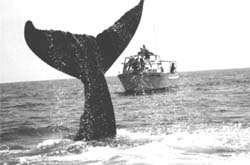A whale of problem
 ONE of the less desirable features of globalisation is that decisions made in far away cities can drastically and adversely affect small local communities across oceans and continents. These communities are often helpless in reversing the decisions made by people who have little understanding of, or sympathy for, the cultural aspirations of the affected people. The Inuit, the native circumpolar communities, provide an example.
ONE of the less desirable features of globalisation is that decisions made in far away cities can drastically and adversely affect small local communities across oceans and continents. These communities are often helpless in reversing the decisions made by people who have little understanding of, or sympathy for, the cultural aspirations of the affected people. The Inuit, the native circumpolar communities, provide an example.
Traditionally whale hunters, the Inuit inhabit the cold regions of countries like Canada, the us and Russia. The international concern for the declining stocks of certain kinds of whales has created great public pressure to put an end to whale hunting. This has deeply affected the cultural, spiritual and nutritional aspects of Inuit life. Commissions and conventions like the United Nations' Convention on the Law of the Seas (unclos) and International Whaling Commission (iwc) have virtually ended commercial whaling. However, they have failed to take note of the basic physical and cultural needs of the Inuit. This book tries to put forward the Inuit perspective "on the integral role whales play in cultural, economic, philosophical and nutritional aspects of life,' and how decisions taken by bodies like iwc adversely affect their basic interests. The Inuit Circumpolar Conference laments that Arctic pollution that had its origin in far away cities ultimately affects them. Similarly, a certain kind of
